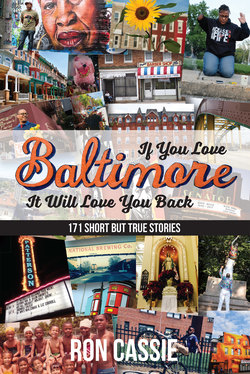Читать книгу If You Love Baltimore, It Will Love You Back - Ron Cassie - Страница 24
На сайте Литреса книга снята с продажи.
ОглавлениеButcher’s Hill
East Fayette Street
Aug. 16, 2012
12. A Dream Un-deferred
Gustavo Andrade lifts up a megaphone and asks several hundred Latino students and young adults outside East Baltimore’s CASA de Maryland an important question. “He vivido en Estados Unidos de América salir por mas de seis meses des del el 15 de junio de 2007? (Have you lived in the U.S., since 2007 without leaving for more than six months?)”
Andrade, a senior CASA organizer, then asks those in line if they have a high school diploma, GED, or are enrolled in school or a career-training program. Finally, “Estuve presente en EE.UU. el 15 de junio de 2012?” (Were you present in the United States June 15, 2012?)
That last day, June 15, is significant because it’s the day President Obama signed the Deferred Action For Childhood Arrival executive order. The directive—albeit with many stipulations—allows young immigrants brought here by their parents and facing possible deportation to apply for a temporary work permit.
Nineteen-year-old Diana Garcia, who came to Maryland from Mexico a decade ago with her mother, is one of those seeking to apply (cost: $465) for the two-year “deferred action” deportation reprieve. Bright, attractive, and bilingual, she graduated from Annapolis’s Broadneck High School in 2011.
“They say it could take a few days to several weeks after the applications are sent in to find out if it’s been approved,” she says. “We’ll see. This is a great opportunity. We all know that.”
Garcia says would like to study medicine and become a holistic health practitioner. Currently, she’s employed at a gas station whose name she’s afraid to reveal.
“If I can drive, work legally, I can get a better job,” she says. “Then maybe I can afford in-state tuition.”
Later, inside one of CASA’s small conference rooms, stack of paperwork in hand, Garcia spends an hour and a half with trained volunteers documenting the schools she’s attended, her medical vaccinations—even offering proof of her Catholic Sacrament of Reconciliation—to show she’s been in the U.S. continually for at least the past five years. Afterward, she waits as everything is photocopied and scanned.
“I didn’t understand when I was little that I was illegal. It wasn’t until high school when my friends started to drive and get jobs, which I couldn’t, that I began to realize I probably couldn’t go to college, either,” she says. “You’re really happy watching all these good things happen for your friends, you truly are, but at the same time, it’s really hard.”
